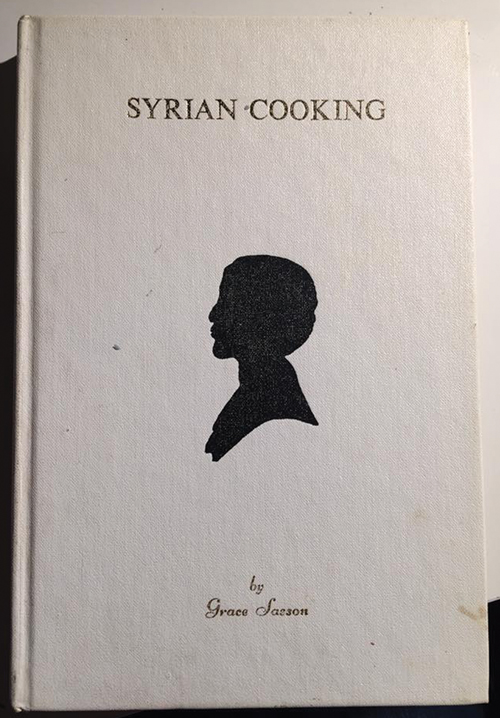Life Sketches by Terry Berkson
A Long Way from Aleppo

My friend Victor’s father, Aboud, came to America from Aleppo, Syria around 1920. As a young man, Aboud left the city of Aleppo and his weeping mother behind and struck out on his own to make his fortune. She was very worried about her son because she thought the world outside of Aleppo was a great desert filled with thieves and treachery. So, she prepared him for his long journey by giving him a watermelon to quench his thirst and by sewing a very deep pocket into his pants to protect what little money he had from thieves.
I would hear about all of this around holidays, when Victor’s father and his mother, Grace, would invite a large group of friends to their comfortable Brooklyn home to celebrate. His mother was such a fine cook that she was encouraged by many to publish a cookbook. When I later attended these dinners with my wife, Alice, Grace gave her an autographed copy.
It was after dinner when we were all sitting in a large living room that Aboud would hold the floor.
“I had to wait until my boat was ready, so I walked around the city with that watermelon on my shoulder. Picture me much taller back then.”
He could only afford to travel in steerage and would be packed in with the freight. When he boarded the ship and it set sail, there were passengers who weren’t very nice. In a short time he was feeling seasick, so he climbed to an upper deck for some fresh air. A man from second class saw him hanging over the rail and told him to get back to where he belonged. That night, Aboud was happy to see the same man seasick and hanging over the same rail.
In his travels, Aboud often found himself in large crowds.
“One time, a man had his hand in my pocket up to his elbow, but he couldn’t reach my money—thanks to my mother.”
When Aboud arrived in New York, he couldn’t speak a word of English. He’d enter an eatery and cluck like a chicken in order to get a plate of scrambled eggs. Life was rough, but much better than back in Aleppo. When he was a kid, he used to get terrible headaches, so his mother took him to some kind of doctor who cut his scalp with a razor to bleed him. It didn’t help much, if at all, and when it was again time for another bleeding Aboud ran away from home to avoid the torture.
As years in New York passed, he learned English. The headaches were already far behind him when he rented a little store on the lower east side of Manhattan where he sold clothes and dry goods. Times were difficult and often a day would pass when Aboud would scarcely make a sale. It was hard to put food on the table.
“I had this coat hanging in the store for a long time. I needed to move it out, so I cut a stack of paper the size of dollar bills, wrapped one dollar around it with a rubber band and dropped the ‘bankroll’ into a pocket of the coat. When a patron tried it on, I told him to feel the deep, warm pockets! The man reached in, felt the roll, took a quick peek at it and crookedly decided to buy the coat!” Aboud said, laughing.
In the following years, business greatly improved. Aboud specialized in curtains and fabrics, married Grace—not necessarily in that order—and they had three sons who became educated and or successful in business. One even served as a United States Marine.
My friend Victor was the youngest son and became a journalist. Some years ago, he made a trip that included a visit to Hong Kong. Small world that it is, Victor met a man there who was of Syrian extraction. Their kinship inspired the man to invite Victor to his Hong Kong home for “a good Syrian meal.” The food is similar to Greek food, with dishes like meat, rice and chick peas wrapped in grape leaves, and Victor was treated to a great feast.
“Where did your wife learn to cook like this?” Victor asked his new friend.
Beaming, the man got up and walked into the kitchen. A minute later he returned with Victor’s mother’s book, “Syrian Cooking,” by Grace Sasson.
Today, both Aboud and Grace are gone, leaving behind many good memories of times spent in their Brooklyn home. Their three boys have made their way in the great “desert.” If the current situation in Syria were different, Victor would be able to afford to make his father’s long-ago voyage in style. I often think of him and his interests in, among other things, jazz and automobile racing—which, considering the past and what is now going on in Syria, is a long way from Aleppo.
Terry Berkson’s articles have appeared in “New York” magazine, “Automobile” magazine and many others. His memoir, “Corvette Odyssey,” has received many good reviews: “highly recommended with broad appeal,” says “Library Journal.”

